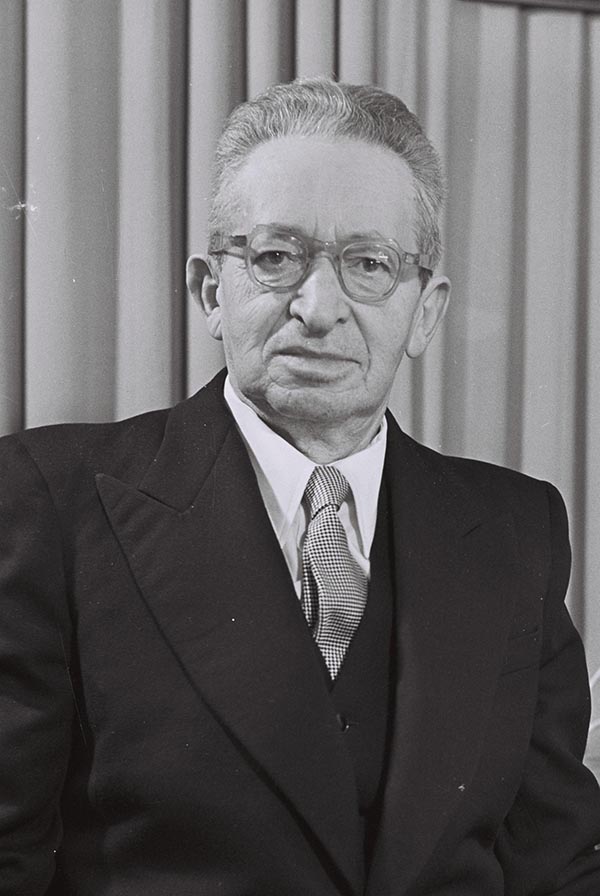Yitzhak Ben-Zvi (יִצְחָק בֶּן־צְבִי; November 24, 1884 - April 23, 1963) was a historian, ethnologist, Zionist leader, and President of Israel. His was born in Poltava in Ukraine and his father, Zvi Shimshelevich, was one of the organizers of the first Zionist Congress in Basel in 1897, and the only organizer of the congress to live to see the foundation of the State of Israel. But for their political organizing, Yitzhak's father and mother were exiled to Siberia. Ben-Zvi briefly studied at Kiev University but dropped out to focus his efforts on the Poale Zion, a Marxist Zionist organization he co-founded. Facing political persecution in the Russian Empire, he emigrated to Palestine in 1907. In Jerusalem, Ben-Zvi was deeply involved in the Zionist movement and became an ally of David Ben-Gurion. He also undertook impressive scholarly efforts to document the language and culture of the Jewish communities of Palestine, and of Mizrahi and Sephardic communities more broadly, as well as the Samaritans. From 1919, he abandoned Marxism for democratic socialism, became more strident in his stance towards the Arab community, and was active in the paramilitary organization Haganah (he was an Arabic speaker who had earlier advocated a union of the Jewish and Arab 'proletariat' in Palestine). He also entered formal politics, serving on the Jerusalem City Council and as president of the Jewish National Council. Ben-Zvi also continued his scholarly work, and played a central role on the Government Naming Committee after the establishment of Israel. In 1952, he was elected the second president of Israel, a post which he held until his death.


